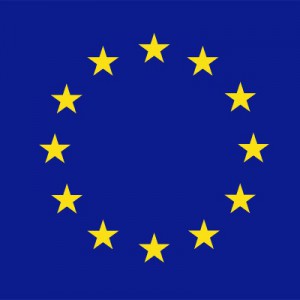EU Council Adopts Conclusions on Middle East Peace Process

Brussels, May 12, 2014 (WAFA) - The EU foreign affairs ministers’ meeting, held in Brussels on Monday, adopted Conclusions on the Middle East Peace process, stressing that all sides must exercise maximum restraint and avoid any unilateral action which may further undermine peace efforts and the viability of a two-state-solution.
Following are the conclusions adopted by the council:
1. The EU is extremely concerned at recent developments related to the peace process. The EU has fully supported and praises US peace efforts deployed by Secretary of State Kerry and his team. The extensive efforts deployed in recent months must not go to waste.
2. A negotiated two-state solution remains the best way to resolve the conflict once and for all. The EU regrets that despite US efforts, greater progress has not been made by the parties to date in the talks. The EU urges the parties to use the coming weeks to find the common ground and political strength needed to resume this process and to make the necessary bold decisions. The EU remains determined to do all it can to support that goal, including through the offer of a Special Privileged Partnership, which will ensure unprecedented economic, political and security support for both parties in the event of a final status agreement.
3. The European Union recalls previous Council conclusions which have laid down its vision for a two-state solution resulting in an agreement on all final status issues, ending all claims, and fulfilling the legitimate aspirations of both parties. A one state reality would not be compatible with such aspirations.
4. The EU calls on all sides to exercise maximum restraint and to avoid any unilateral action which may further undermine peace efforts and the viability of a two-state-solution, such as continued settlement expansion. The European Union will continue to closely monitor the situation and its broader implications, and will act accordingly.
5. The EU has consistently supported intra-Palestinian reconciliation on clear and certain terms. The EU looks forward to continuing its support, including through direct financial assistance, for a possible new Palestinian government composed of independent figures that commits to the principles set out in President Abbas' speech in Cairo on 4 May 2011. Such a government should uphold the principle of non-violence, and remain committed to achieving a two-state solution and to a negotiated peaceful settlement of the Israeli-Palestinian conflict accepting previous agreements and obligations, including Israel’s legitimate right to exist.
The EU's engagement with a new Palestinian government will be based on its adherence to these policies and commitments. Reconciliation on these terms is an important element for the unity of a future Palestinian state and for reaching a two-state solution and a lasting peace. The EU welcomes the prospect of genuine democratic elections for all Palestinians.
6. The EU underlines that Mahmoud Abbas, as President of the PLO, remains fully in charge of the negotiation process and is mandated to negotiate in the name of all Palestinians and that the peace negotiations can and must be resumed.'